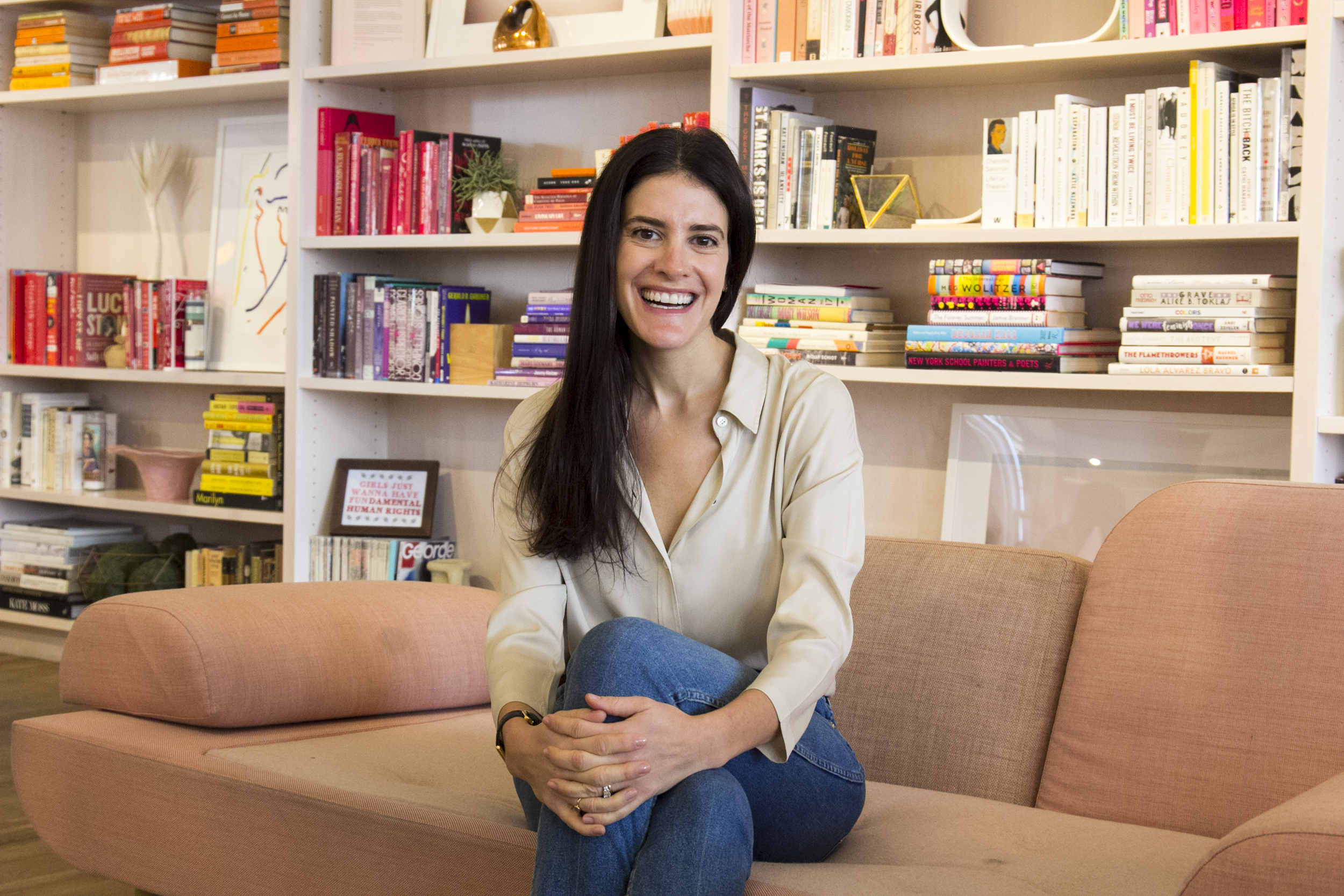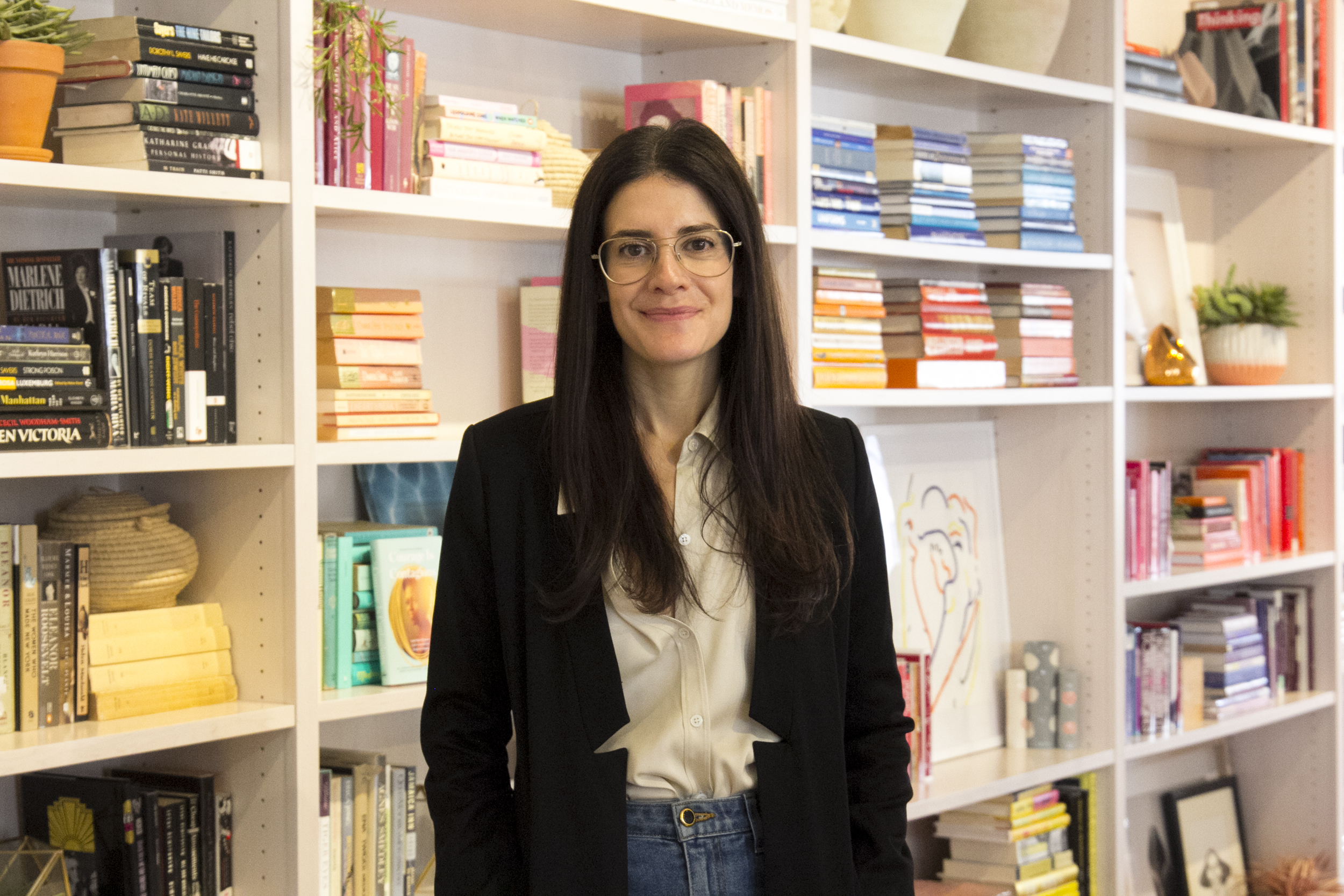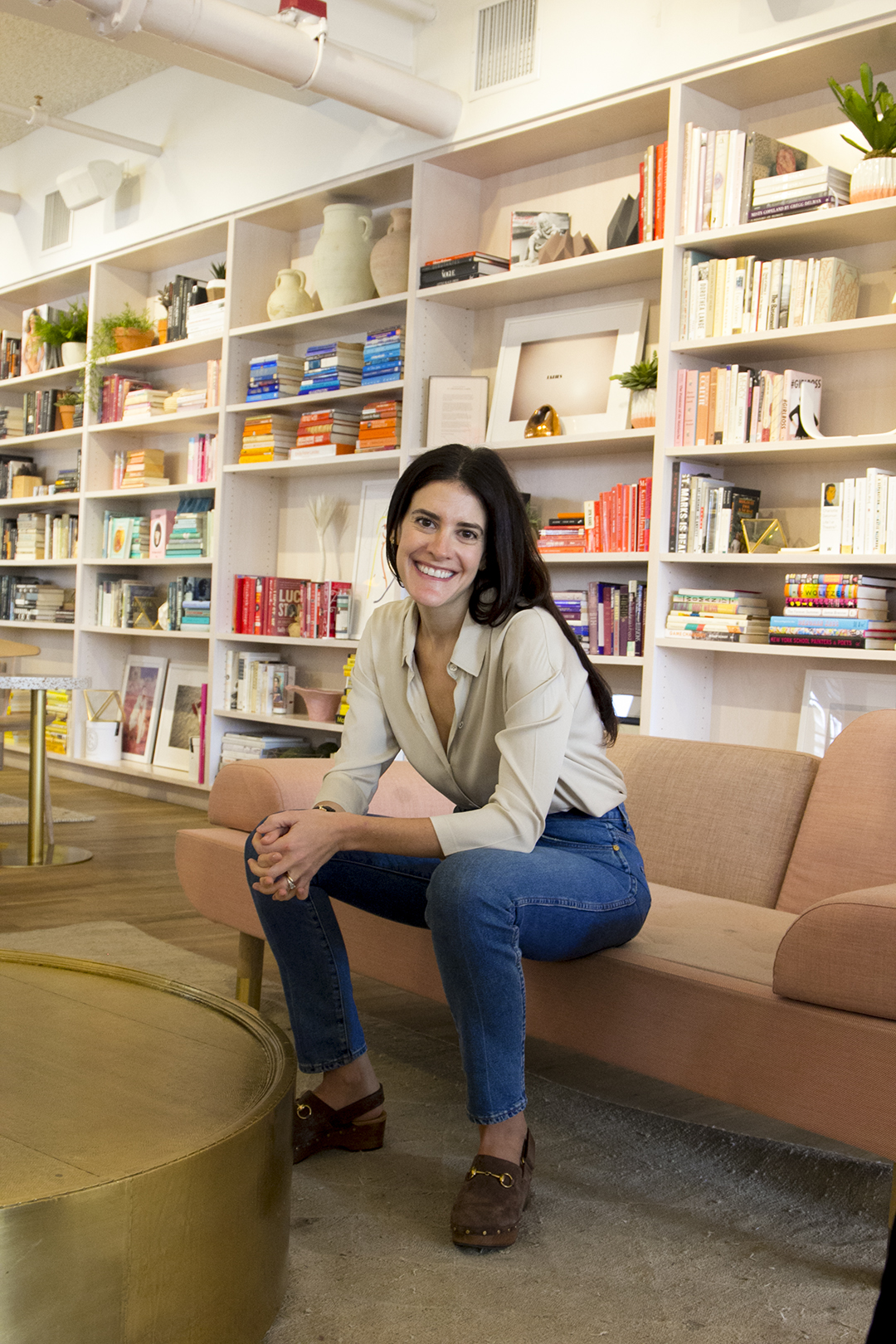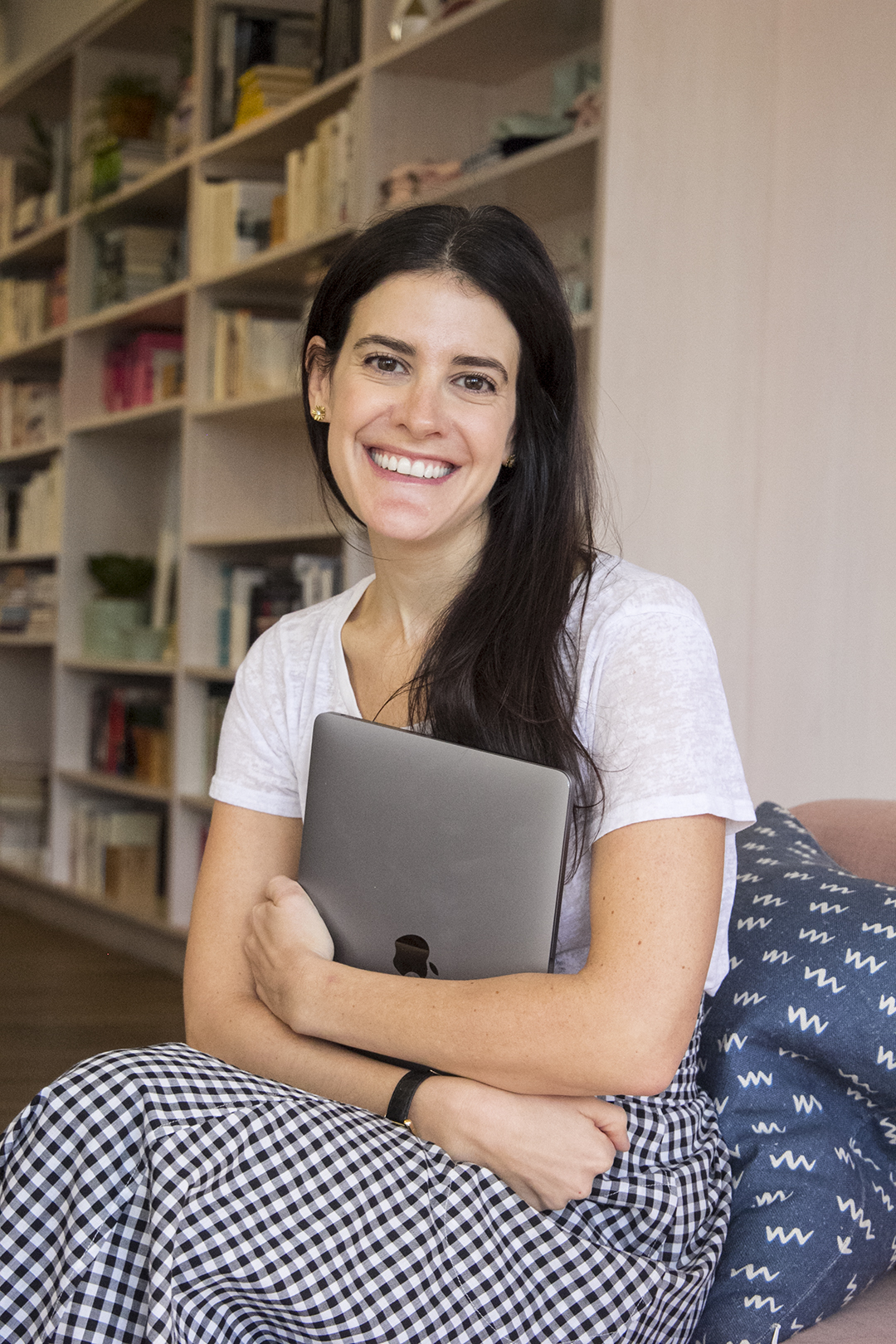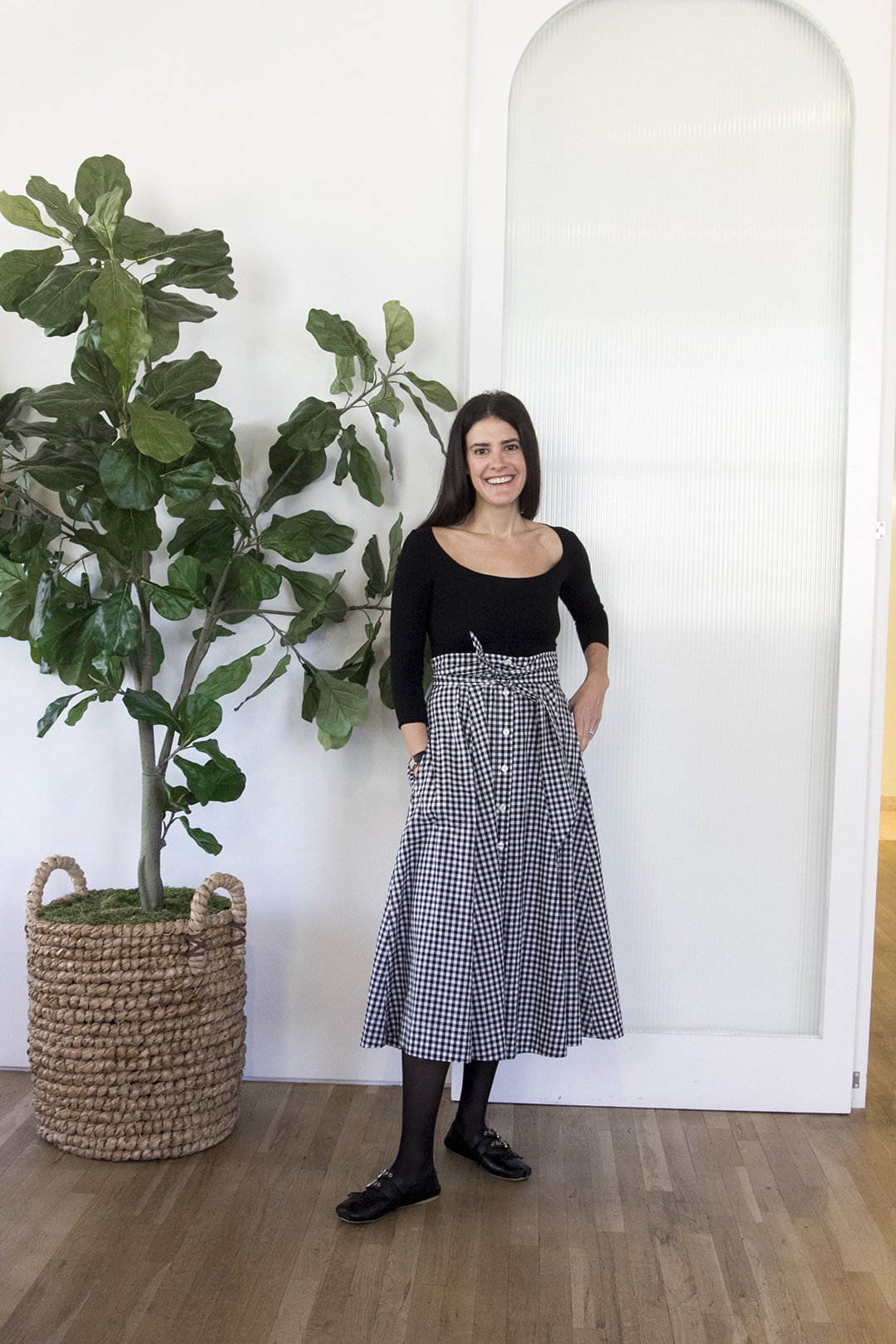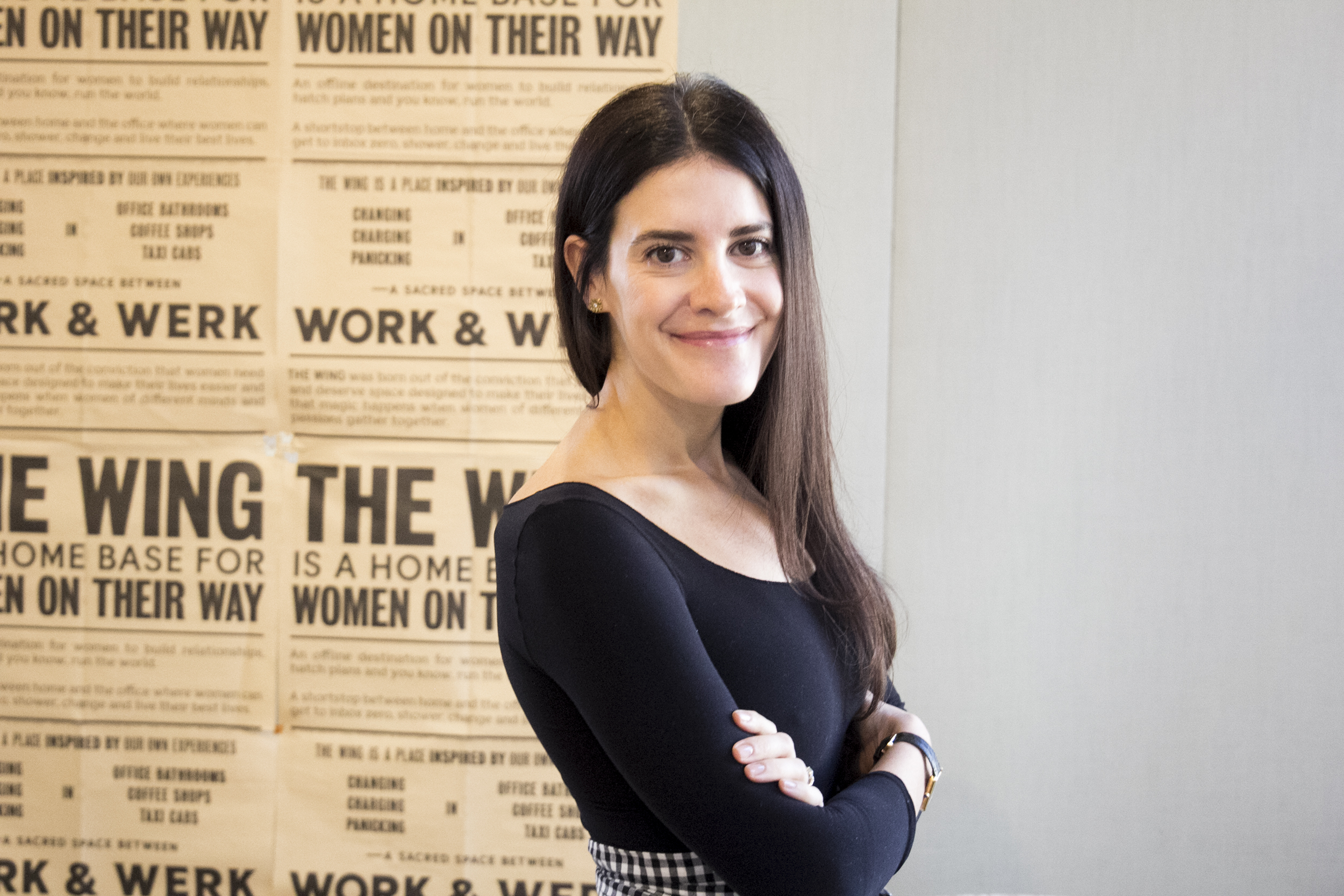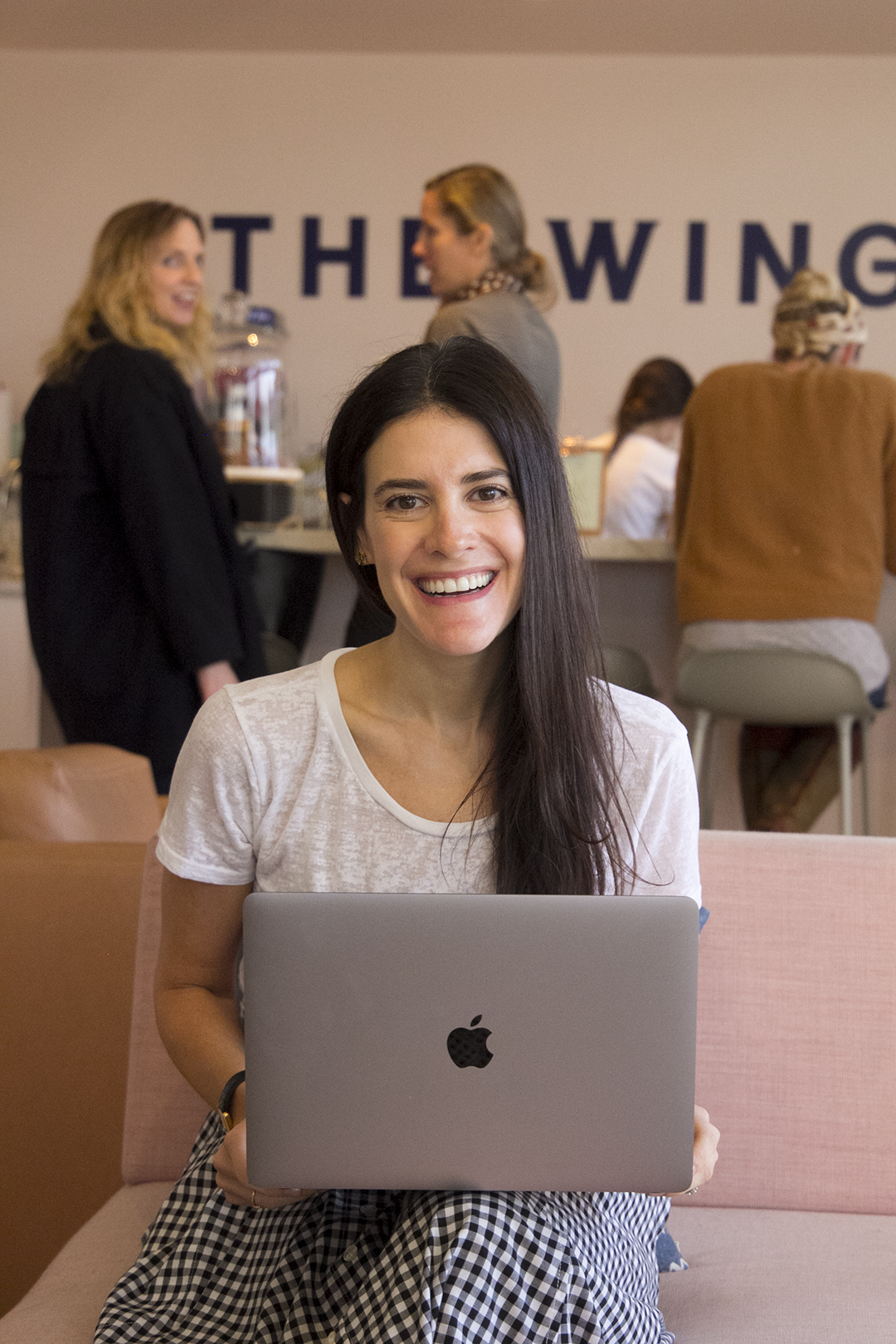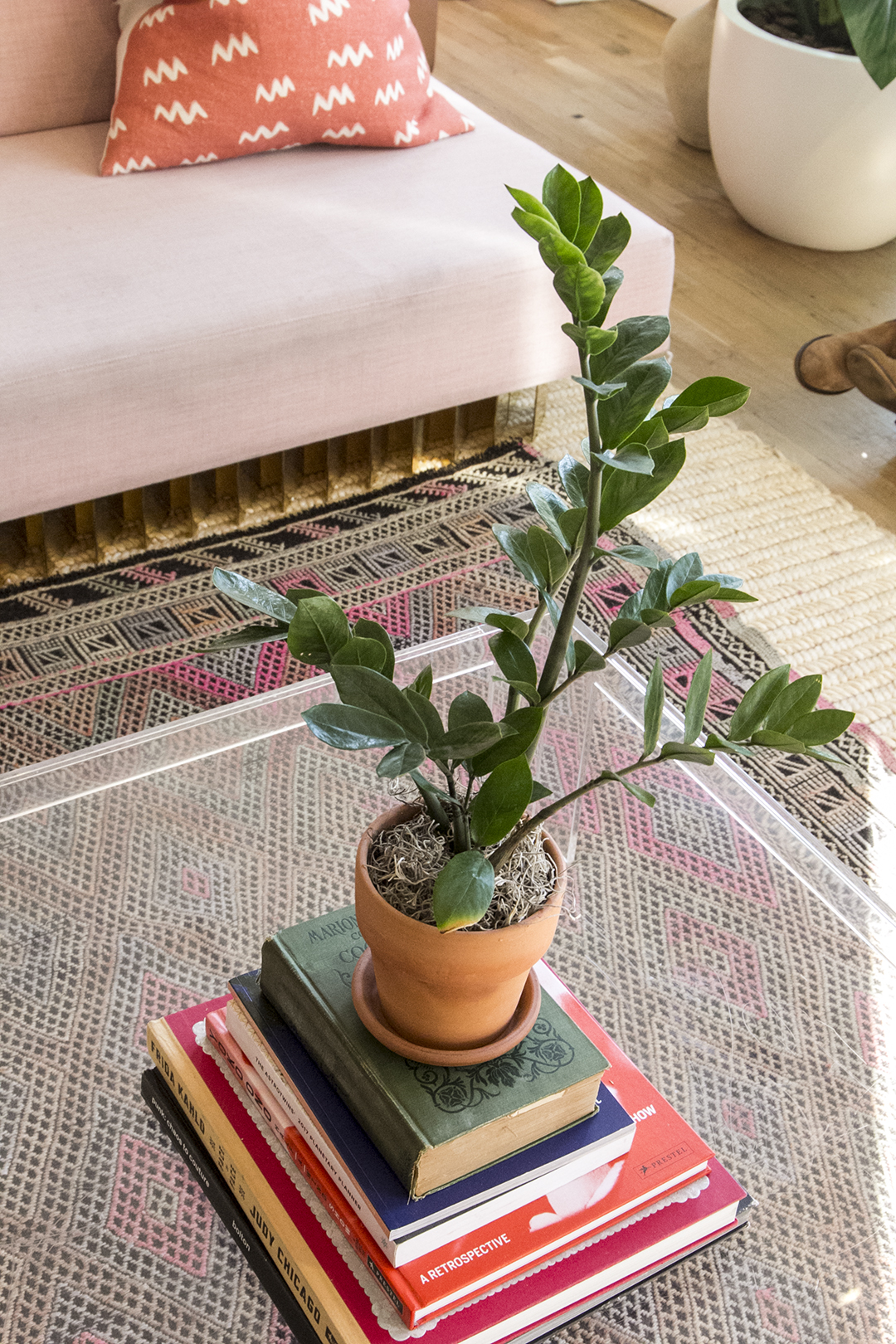After a high-powered stint in fashion PR, Caroline Tell understood how to create a brand story – and knew she wanted to rewrite her own. She’d spent her formative years working for Michael Kors, long before the designer was associated with Project Runway or the Met Gala, which is to say before he was a household name. Through storytelling, Caroline helped transform the Kors brand into a mega American fashion house, beloved by everyone from Blake Lively to Solange. But Caroline had other passions she wanted to pursue.
Criss-crossing into editorial, the writer covered accessories for Women’s Wear Daily and later returned to Michael Kors, where she helmed the brand’s digital strategy. Understanding both sides of fashion gave Caroline invaluable insights into the inner-workings of the industry. And yet, there was still something missing.
Determined to create a career that was creatively stimulating and exciting, Caroline plunged into the world of freelance journalism. Navigating the evolving publishing landscape, she carved out a reputable niche in the growing gig economy, while simultaneously starting a family. Breathless yet? We know the feeling. At first glance, freelancing sounds like a flexible solution for parenthood, and yet the reality is often longer hours and increased instability. So, how did she manage to align her personal and professional goals?
Here, Caroline discusses the shifting tide of digital as well as the impact of influencers on the industry. From budgeting best practices and finding the right assignments, to pitching new clients and balancing motherhood as a freelancer, Caroline gets candid as she gives us a behind-the-scenes look at her version of happily ever after.
My first job out of college was in the public relations department at Michael Kors. I was the general PR assistant and the personal assistant to the senior vice president of communications, Anne Waterman. I didn’t know anything about anything. She had to teach me everything. How to answer a phone. How to call a car. How to dress. She essentially taught me how to be an employee and how to meet high expectations and deliver my A-game in a super intense environment. I am so grateful for her leadership. She taught me that God is in the details, which I often refer back to during my work and throughout life. While I was there, the brand went from being a design label on Seventh Avenue to a major fashion house with sprawling offices overlooking Bryant Park. We went under new ownership. We started Project Runway. We launched MICHAEL Michael Kors. Not to mention the CFDA Awards, Met Ball, runways shows, dressing celebrities, dressing socialites, organizing campaign shoots. It was fun and wild and it gave me a wonderful introduction to the fashion world. But I knew I wanted to write. Since I was seven years old, I wanted to write.
I left Kors to pursue a Master’s Degree in Journalism at NYU and I went to work for Kate Betts at Time magazine’s Style & Design quarterly. Kate was incredible to work for. She is one of the most important journalists in fashion and she took me under her wing and helped me navigate the editorial world. She gave me opportunities that no editorial assistant would have had at a major magazine, like covering fashion week, attending market appointments and actually writing. Time was a great place to get my feet wet. As a quarterly, it felt relaxed and happy, and Kate had the time to nurture me in a way I’ll never forget.
HOW THE RECESSION CHANGED THE MEDIA LANDSCAPE
From Time, I went to Women’s Wear Daily, which from day one was nonstop, fast-paced and frenetic. I was covering the accessories market at a time when every ready-to-wear label was launching handbags, eyewear and jewelry and it was all about luxury. It was an exciting time to be covering an exciting beat. Also at WWD, it’s your job to be everywhere, so I was meeting so many people. So many publicists, business executives and celebrities. Having sit downs with CEOs. Working on daily deadlines, filing stories in cabs, closing pages, getting scoops and exclusives. Being out nearly every night. It was great.
Then the financial crisis hit in 2008 and WWD was in turmoil. It lost a great bulk of its print paper. We were figuring out what “online” meant at a daily paper. The paper was letting go of staff left and right. I had been covering accessories for a few years, and it was around the time that the blogosphere was ramping up. Magazine editors began decamping to fashion labels to lend their editorial skills on the brand side. After a drink with an old colleague at Kors, I decided to leave WWD to go back to Kors and create a new position there called digital editor. I launched the brand’s blog, I worked one-on-one with Michael to create video content, I started up social media and I “covered” the brand internally. I was also writing catalog copy and filling various copy needs. I was basically the voice of Michael internally and externally. It was an exciting time to be on the forefront of the “digital revolution” but I realized that I missed journalism. I missed telling stories and I missed the freedom that life afforded, which was so different than a corporate 9am-6pm day. This was also around the time that I wanted to start a family. So, after a great deal of thought, I decided to go freelance.
ON GOING FREELANCE
I think it was just a “now or never” moment. I really wanted to get back into journalism and writing. I had been on a few editorial interviews during my second stint at Kors, but nothing felt right. I was unhappy and felt that every day I wasn’t writing, I was burying the reputation I had worked so hard to build. I also knew that my work at Kors, while challenging and exciting, wasn’t what I was meant to be doing. I’m so grateful for the education I got in the social and digital space, but I felt I wasn’t utilizing my best skills. So, I just took the leap.
WHAT THE FREELANCE MARKET WAS LIKE WHEN SHE STARTED & HOW IT’S EVOLVED
There was growing opportunity on the brand side, as more and more brands started to become self-publishers like Kors. Some firms didn’t want to hire full-time employees to dedicate to this work, so I hopped around from brand to brand, creating content and doing social media until they would eventually make a hire and I’d hop elsewhere. So, I was able to serve other brands in the same way I served Kors, only as a freelancer. That was a great way to enter the freelance world, with a paycheck in hand each month, as I pitched and pitched and got my byline out. On the editorial side, the market was strong. Editorial staffs were shrinking yet because of online, the need for content was growing. Enter the freelancer. After all, we are relatively cheap labor.
I think being a freelancer is more accepted or understood now verses when I started. I used to feel I had to justify my career to everyone who asked what I was “up to,” and that “freelance” was a euphemism for “in-between jobs,” which for me, it wasn’t. Of course, I just wasn’t confident and really owning my choice yet, which took time. I also think a few great bylines helped me own it. But now, because of lay-offs and the ease of the Internet, there’s this micro-community of independent contractors in New York, so the “gig” lifestyle is more accepted now. We are co-working at cool spaces. We are getting up and getting dressed and networking and collaborating. It’s not this idea of sitting around the house in our pajamas but that we are out of the house, working, meeting up and doing things on our own terms. Also, another change is the growing opportunity online! I used to turn up my nose at online writing. I’m old school and I come from the world where print comes first, online second. But now we all know that’s not the case. I’ve also written some of my favorite stories for online properties. There can be a lot more freedom and less red tape in online.
WHAT THE RISE OF INFLUENCERS MEANS FOR JOURNALISTS
I’ve thought a lot about that, because there was a moment when I watched this trend unfold and thought, so is this it for me? I don’t have 300,000 Instagram followers, so is what I have to say still worth anything? Or, do I now have to try to be an influencer? But I think the “influencer as contributor” model is very specific. It’s not suitable for every story, certainly not suitable for every publication and I’d like to think what sets me apart is that I came up as a reporter. I’m not really a part of my stories, whereas with influencers it’s all about them. My job is to notice a trend or a phenomenon and get other people to talk about it in order to create or “prove” the story. I would never pitch a story on my favorite skincare creams or foundations. I don’t exist very often in my pieces other than a personal essay or maybe a travel story, and it’s always fun when I get to be me but it’s not in that “influencer” kind of way.
RIDING SOLO
I think it can be scary but incredibly exciting. I’ve never been someone whose ego was connected to a title or place of work. That could be because I went freelance at the age of 30, so my career wasn’t fully cultivated at one place and maybe I had less to lose. The idea of being a brand is so funny these days and something I think about often. I guess with Instagram, we’re all “brands,” so to speak. But does a cardiologist or an OB-GYN worry about her brand? What about a non-profit fundraiser or a lawyer? This notion of branding ourselves feels very media-specific. Therefore, I try to keep it simple. At the end of the day, writing is my job – a job that I am extremely grateful for because I genuinely enjoy doing it and I think I’m fairly good at it. But I’m just looking to do work I’m proud of, raise kids I’m proud of, feel great, enjoy the company of my family and friends and travel the world when I can. I guess that’s my brand…
FINANCES 101
I think at some point it just comes together. When you’re around for a while and people hear about you or read your work, you can build a base for yourself that can launch you in many different directions, as long as you remain open to the opportunities. But I don’t know if that worry ever goes away. Even when you’re on-staff, is anything ever really secure? But I try not to stress it. I also must mention the fact that I have a husband who has health insurance and a stable job. I feel like that’s so rarely mentioned in some of these interviews and it’s implicit in everything. If it weren’t for him, I wouldn’t have the option of not having to worry so much.
I set my rates according to how other business owners in similar fields price themselves. Certain publications have rates that are non-negotiable, so it’s only in some circumstances that my personal rate applies. My rate has probably gone up by $50 or so over the last six years. Not tremendously. It’s a fine line between knowing your worth and pricing yourself out of a job, so you have to feel it out. I am also willing to work for less if it’s a higher paying assignment cumulatively or if the partnership has lasting, ongoing value to it. Or, of course, if it’s a young brand I think is great. It’s a bit case by case.
With negotiating, I feel like you just have to know your worth and try to stick to it. But take ego out of the equation. And if you need money, then for god’s sake take the work, as long as it’s not totally insulting. There are times I’ve worked for less than my regular rate. I just try not to make a habit out of it.
I used to take anything that came across my desk. And don’t get me wrong. I still say yes to 99% of the work that comes my way, assuming it feels “on brand” (ha, there’s that word again!) and that it meets certain criteria. Sometimes it’s about more than a paycheck, but about a relationship growing and becoming long term. One of my goals is to go deeper with fewer publications or people, so I’m not bopping around so much. But if for some reason an opportunity doesn’t work out, I don’t sweat it because something else is usually around the corner. I didn’t always have that foresight. I think it comes with time. But sometimes if a job seems like a racket, if there are 10 people on an email, if it’s totally demanding or confusing, or without much joy in the writing, I’ll turn it down if it doesn’t seem worth the headache. Especially when I could be spending that time pitching or writing stories I love, or hanging with my kids!
HOW TO BUDGET FOR THINGS LIKE VACATION TIME AS A FREELANCER
I’m only one person, so I can technically only work so much, which is limiting. There is a cap to how much I can work and therefore, earn. I also have a set number of hours in each day that I can dedicate to working before I have to go home and parent. So, I just do as much as I can, and if I have a slow month because of personal factors – like a vacation or if I’m touring schools for my kids, then I have to be OK with that and I’ll set goals to ramp up the following month. Some months I am crazy busy and some I’m not, and I’ve learned to be OK with the cycle of it all. I also have the safety net of a dual family income, which takes a little pressure off.
THE ART OF PITCHING
I come up with ideas everywhere I look and by talking to people about what they’re into, what they’re up to, what they’re obsessed with. It sounds so journalism 101, but there really is a story everywhere. When you go to pitch a story, think about why it’s relevant now and not five months ago, or why it might be different or new. Were people always doing/wearing/saying this? Or did something change? Try to examine the story in the bigger context of the social or cultural climate. Have at least three ideas or ways to back it up. Think of it like your high school thesis and try to prove it. And you should be able to do it all in one quippy, well-written paragraph that is the pitch. I recently spent three hours on a pitch that I’m not even close to sending. I’m sitting with it, it’s on the verge of being there, but it’s not there. I need to go deeper. I just keep asking myself, so what? So what? Hopefully I’ll get there.
HOW HER WORK HAS CHRONICLED HER EXPERIENCES
When I look back on my stories, I see myself through the pieces themselves. I tend to pitch whatever I’m experiencing, because if I’m going through it, odds are someone else is too. So my identity is woven throughout my stories. My pieces almost serve as this living biography of my life experience. Everything from my travels, to my pregnancies or parenting dilemmas, to what I’m wearing, to the collective culture I’m living in – they all plays out in my stories.
I started out as a fashion writer, but oddly my first big story for the NY Times was about how texting is turning us all into flakes. It was so fun to write and I realized then that I could write about anything. I have the fashion know-how in my back pocket and I can call upon that at any time, but I’ve absolutely loved exploring social trends in lifestyle, wellness, travel, beauty, and posing questions in relationship to how and why we are dressing or living a certain way but it’s not just about what we are wearing. Also, as I get older, my interests have evolved. I used to spend every weekend window shopping. Now I have two children and haven’t been inside a store in months. I love clothing and beautiful things, but I wouldn’t say that fashion is a passion of mine any longer. I think I just love to cover trends of all types. Why people are doing what they’re doing.
Parenting is like having a second job. So that means I have a finite amount of time to complete tasks and meet deadlines in my “first” job, because my second job cannot wait. Therefore, I approach my work with maximum efficiency. I can’t afford to waste time or dilly dally because there is a massive deadline every day that is parenthood. I’ve always excelled in time management, and these skills have served me well as a mother and as someone who runs a business. But regardless, I believe that after a long day working, it’s time to stop. Who does their best work at 6pm? Do strong, efficient work but don’t drag it on – unless of course, you have major deadlines to meet, which can happen. When that does happen, I go back to work after putting my kids to bed. I grew up having dinner with my parents nearly every night and that’s important to me, and I believe it’s important to them. That’s also, in part, why I went freelance in the first place.
Children or no children, freelance or on-staff, I think everyone must draw boundaries between work and personal. Especially these days, when we’re all constantly connected, it feels harder than ever to create those distinctions. I create my schedule much like a traditional work setting. Usually I work from 9am-5pm every day, cram in exercise somewhere, and come home and parent. It’s funny – someone recently said to me, “As a freelancer it must be hard because you can never really turn off.” Then I thought back to an interview I once had at a highly-esteemed woman’s site. The editor explained to me that if I wanted to leave at 5pm to see my kids and have dinner, that was fine, because everyone hops back online at around 8:30pm to chat and review the next day’s lineup. I remember thinking, wow, the only thing I’m doing at 8:30pm is trying to stay awake long enough to watch a TV show, or read or spend time with my husband.
ON THE AREAS SHE’S STILL WORKING ON
Whenever someone pays me a professional compliment, I always say, ‘I’m so glad it looks that way!’ It’s self-deprecating but freelancing can be sort of a mind game because after I write a big story, I’m high on life for a bit. If I haven’t written one in a while, and instead I’m busy focusing on behind-the-scenes work, I start to get anxious. But I’ve been doing this long enough to know that these things come in waves. Sometimes I’m super inspired and I feel like I have so much to say, and sometimes I don’t. I just remember to be patient and remain open and connected to what’s taking place around me and the ideas will come. Professionally, I’d like to be doing more in-depth and feature reporting or perhaps take on a book. Something that I can just sit with for a while. I’d like to settle into a job for a minute instead of ping-ponging all over the place.
Also, after moderating my first panel at the Fashion Tech Forum in October, I discovered a newfound desire to be a on television! I’m kind of serious. I mean I love interviewing people. The cool girls’ Kelly Ripa? The new Barbara Walters? Who can help me? To be able sit down and chat with someone without stressing over whether I got down every last quote for a story? So chill. Plus, there’s hair and makeup…
By Dana Karlson

